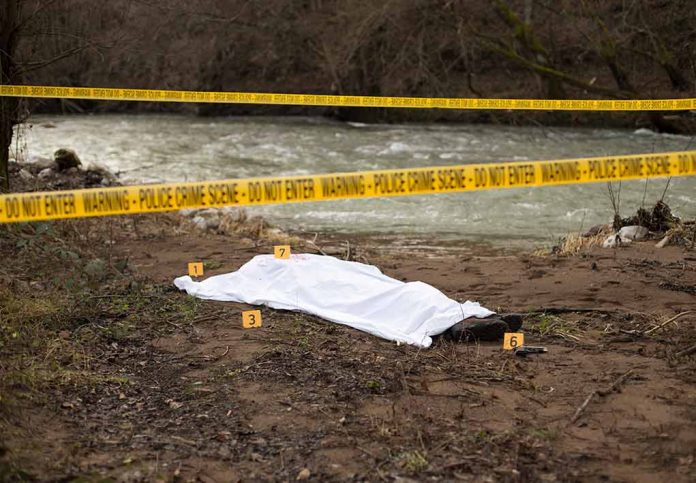
A violent stabbing spree on the Las Vegas Strip by Yoni Barrios has sparked new debate on sanctuary policies and public safety.
Key Takeaways
- Yoni Barrios, an undocumented immigrant from Guatemala, was sentenced to life in prison for a 2022 stabbing spree on the Las Vegas Strip.
- The attack resulted in the deaths of Maris Mareen DiGiovanni and Brent Allan Hallett, injuring six others.
- Barrios was initially deemed mentally unfit to stand trial but later pleaded guilty, receiving two life sentences.
- Sanctuary policies in California had previously shielded Barrios from deportation despite his criminal record.
- This incident has sparked discussions on the efficacy and impact of sanctuary policies on public safety.
The Tragic Incident
On October 6, 2022, Yoni Barrios, wielding a foot-long kitchen knife, launched a frenzied attack on the Las Vegas Strip. His shocking act took the lives of beloved local entertainer Maris Mareen DiGiovanni and Canadian traveler Brent Allan Hallett, leaving six others with serious injuries. This violent outburst was reportedly prompted by his perception of mockery from a group of showgirls. Barrios’s actions culminated in a sentence of life imprisonment, and the incident has left a profound impact on victims’ families and the community.
During court proceedings, survivors and family members shared emotional testimonies. Anna Westby, a showgirl injured in the attack, expressed forgiveness toward Barrios, highlighting resilience amidst tragedy. In contrast, the father of Maris DiGiovanni conveyed his ongoing struggle to forgive the attacker. The emotional remembrances underscore the enduring pain faced by victims’ families. As Barrios begins his life sentence without parole, these testimonies remain as deeply moving reminders of the human cost involved.
Impact on Public Policy
Barrios’s criminal history includes prior arrests in California for domestic violence and dangerous driving. Despite these offenses, the state’s sanctuary policy protected him from deportation. This protection is now under scrutiny, with critics arguing that such policies may inadvertently compromise public safety by shielding criminals from federal immigration authorities. This incident brings into focus the larger debate surrounding the balance between protection for undocumented immigrants and ensuring the safety of communities.
“I’ve been doing this for a really long time and this is one of the most tragic cases I’ve ever seen,” said Judge Tierra Jones.
California’s sanctuary laws have long been contentious. Advocates argue they promote trust between immigrant communities and local police, encouraging victims of crimes to come forward without fear of deportation. However, the Barrios case illustrates the potential risks associated with such policies when they prevent the deportation of dangerous individuals. Former Los Angeles District Attorney Jackie Lacey’s decision not to prosecute Barrios for domestic violence in 2019 is an example where some argue the missed opportunities to prevent future harm.
Reflections and Remembrance
The incident has also brought to light poignant personal reflections from the victims’ loved ones. Carmelita Hallett, widow of Brent Allan Hallett, shared the deep connection she had with her late husband. Her heartfelt words reveal the depth of her loss. Maris DiGiovanni is remembered as the vibrant heart of gatherings, loved by family and friends. Together, these reflections remind us of the human lives devastated by Barrios’s violence and reinforce the need to address the policies that allowed him to remain free.
As Las Vegas mourns this tragic event, questions about the consequences of sanctuary laws continue to emerge. The case of Yoni Barrios serves not just as a cautionary tale but as a call to reassess approaches to immigration and public safety. For policymakers and citizens alike, ensuring that both compassion and security guide decisions will be essential in preventing future tragedies. The lives lost in this attack demand nothing less.





